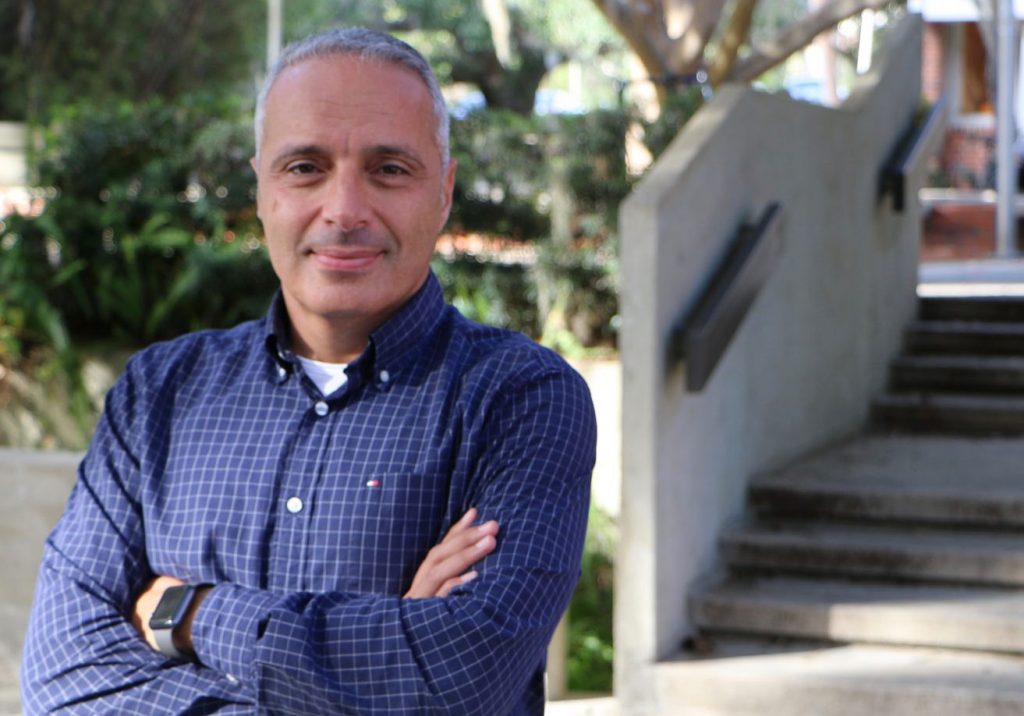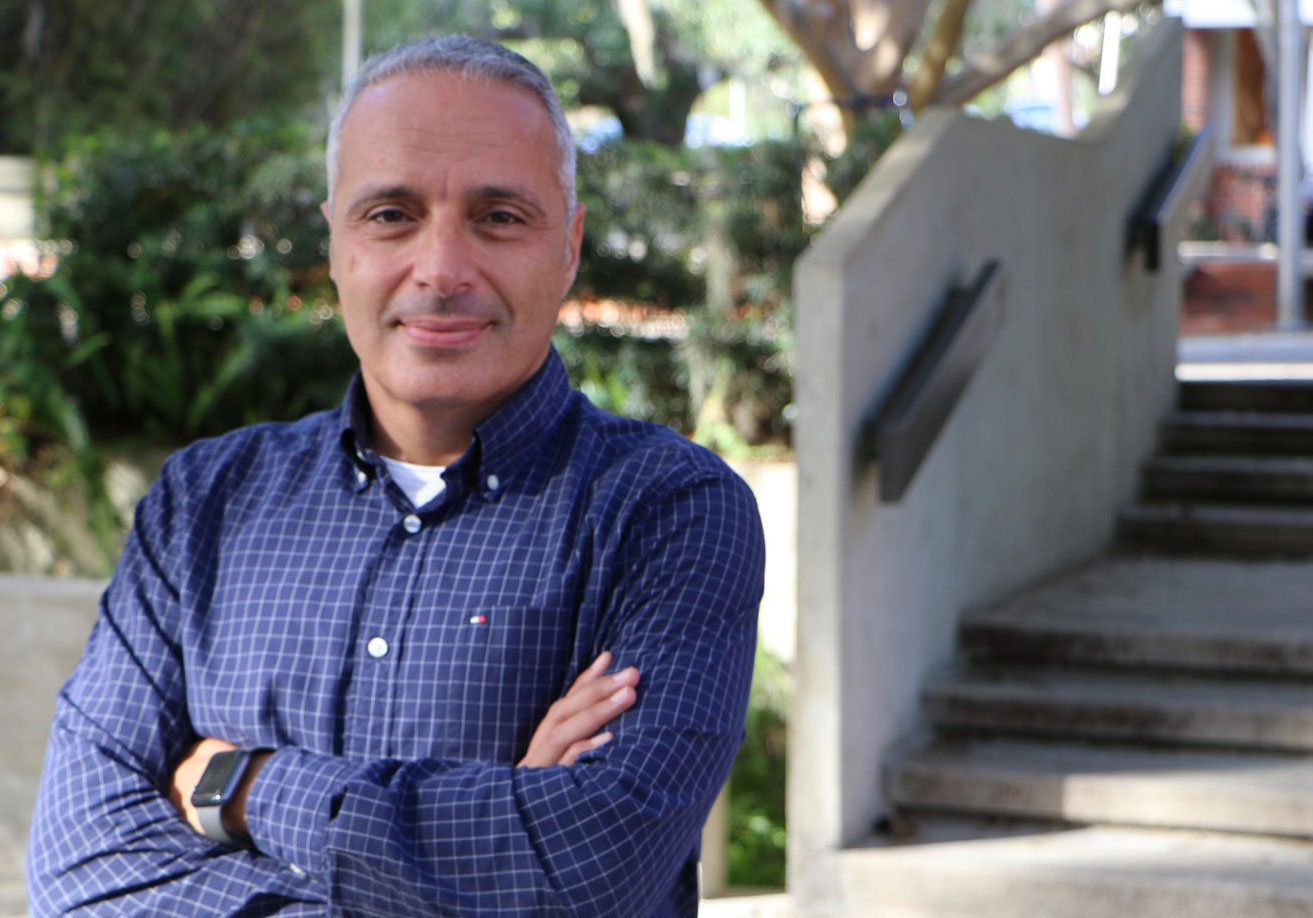Originally published on ECE Florida News
 UF engineers and neuroscientists will test the effectiveness of a new motion-activated type of deep brain stimulation (DBS) aimed at improving treatment for patients with severe essential tremor, a neurological disorder that causes involuntary shaking and usually worsens over time.
UF engineers and neuroscientists will test the effectiveness of a new motion-activated type of deep brain stimulation (DBS) aimed at improving treatment for patients with severe essential tremor, a neurological disorder that causes involuntary shaking and usually worsens over time.
Current DBS therapies for patients with severe essential tremor are continuous, or always on, which can sometimes lead to undesirable side effects, including stuttering and problems with walking and balance. Under a new $3.9M NIH grant, lead principal investigator Karim Oweiss, Ph.D., and co-principal investigator Kelly Foote, M.D., will test responsive deep brain stimulation, or R-DBS, in a clinical trial involving approximately 10 patients over the next 5 years. The new therapy is unique in that with R-DBS, the stimulation only turns on when the system detects movements associated with essential tremor, thereby reducing unwanted side effects.
The R-DBS system utilizes a unique dual lead that has a neural sensing capability which will not only offer an effective rescue strategy for patients with severe tremor (open loop) and failure of the standard VIM DBS, but will enable the optional use of an on-demand, patient-specific tremor control.
Oweiss, a professor of electrical and computer engineering, biomedical engineering and neuroscience, and Foote, a professor of neurosurgery and co-director of the Norman Fixel Institute for Neurological Diseases at UF Health, seek to determine whether R-DBS could mitigate symptoms with fewer side effects while also prolonging the device’s battery.
